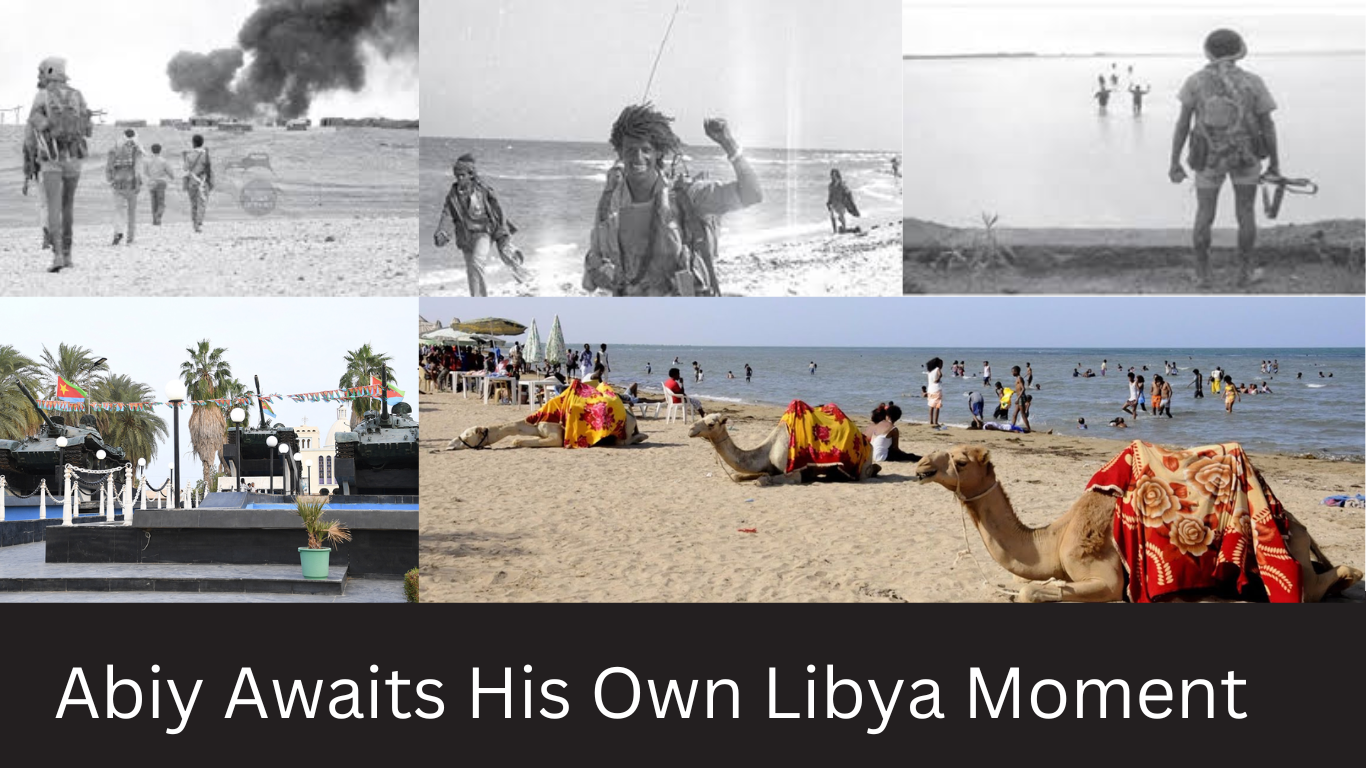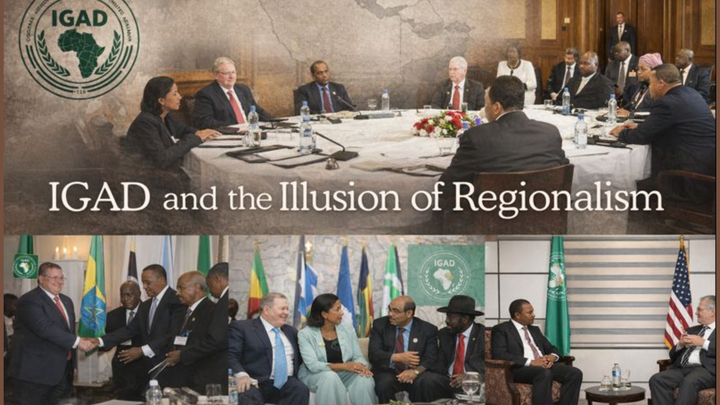The Ship Sailed in 1990: Eritrea’s Enduring Command of the Red Sea
Abiy Ahmed’s dream of seizing Assab was doomed from the start. Eritrea’s foresight and strategy turned his ambition into a self-inflicted defeat long before a single shot was fired.

Amanuel Biedemariam 10/7/2025
The idea of Ethiopia successfully launching a military campaign to capture Assab was doomed from the start—a strategic impossibility and a war Addis Ababa lost long before a single shot could be fired. That defeat wasn’t decided on the battlefield but was effectively sealed the moment the Pretoria Agreement was signed in November 2022.
At that moment, Prime Minister Abiy Ahmed laid bare his deeply flawed and ill-conceived intentions toward Eritrea. His actions exposed not only his shortcomings as a leader but also his abandonment of Ethiopia’s true national interests in favor of serving foreign agendas. In following this misguided course, he squandered a historic opportunity for lasting peace and dismantled a critical military and security alliance with Eritrea. Unknowingly, the inexperienced and shortsighted Abiy handed Eritrea the strategic advantage.
Eritrea, with its long-established strategic depth and experience shaped by decades of overcoming existential threats, immediately understood that Abiy’s signing of the Pretoria Agreement required a major strategic recalibration. President Isaias, in recent interviews, revealed that Abiy had obstructed the conclusion of the war against the TPLF on three separate occasions. Aware of Abiy’s ill intent and childish miscalculations, Eritrea anticipated his trajectory and wisely shifted focus—moving to build understanding and direct relations with the people of Tigray, a move Abiy neither anticipated nor could comprehend. While Eritrea already maintained strong and friendly ties with the rest of Ethiopia, the TPLF’s divisive role had long hindered such a connection with the people of Tigray, a gap Eritrea has since worked to close.
Own a business that serves Eritrean communities? List it today ➡️ EritreaBusinessDirectory.com
While Abiy was scheming against Eritrea and the TPLF with his usual short-sighted ambitions, Eritrea—guided by far greater strategic wisdom and experience—moved swiftly to launch a decisive and proactive maneuver. By fostering a mutually beneficial understanding with the people of Tigray, Eritrea effectively reshaped the regional security landscape, neutralizing long-standing threats at their source and denying Abiy any viable launching pad for future aggression.
As a result, any military move against Eritrea would now have to pass through Amhara’s Wollo region—currently controlled by Fano—forcing Abiy to confront multiple internal fronts before even thinking of challenging Eritrea. This outcome was inevitable. Eritrea’s government, long known for its pragmatic and forward-looking strategy, had anticipated and neutralized the threat well before Abiy’s intentions became public. Having faced and outmaneuvered great powers and regional rivals for decades, Eritrea read the shifting dynamics of the Horn of Africa with a precision and clarity that completely eluded Abiy Ahmed.
While Abiy remains trapped in internal rebellions and growing diplomatic isolation, Eritrea has been calmly and methodically executing a masterful geopolitical strategy—building key alliances and positioning its battle-tested forces to counter any threat to its sovereignty. The idea of attacking Assab is nothing new; the TPLF tried it before and paid a heavy price. Eritrea, having learned and prepared from history, fortified its defenses not only through military strength but through unmatched strategic foresight.
As a result, there will be no war for Assab—because there is no viable path for Ethiopia to wage one. Eritrea’s calculated moves have already preempted and neutralized any potential conflict before it could take shape. Abiy Ahmed’s Ethiopia, fractured by civil unrest, militarily overstretched, and isolated from the global stage, lacks both the unity and the capacity to challenge a nation that surpasses it in every dimension of strategy and resolve. All that remains for Abiy is empty propaganda—a daily show of bluster, drones, and fighter jets meant to project strength he no longer possesses.
Eritrea, by contrast, stands sovereign and unshaken—its borders secured by a legacy of sacrifice and a government that has consistently outmaneuvered its rivals for generations. The so-called “war for Assab” was never real; it was a fantasy defeated not by bullets, but by Eritrea’s extraordinary strategic, political, and diplomatic acumen—ensuring that such a war could never even begin.
Eritrea today stands not only as the anchor of the region but as the true center of gravity along one of the world’s most vital maritime routes. The events in the Red Sea—particularly the actions of the Houthis—have underscored why stability and strong relations among the nations of this corridor are absolutely essential.
As for Abiy and his Oromuma circle, they can shout, posture, and dance on imaginary seas all they want—the reality has long left them behind. That ship sailed in 1990, when Eritrean freedom fighters outmaneuvered both Ethiopian and Soviet forces in one of the most brilliant and historic campaigns ever witnessed on African soil, securing Eritrea’s coastline and its lasting strategic command of the Red Sea.




Comments ()